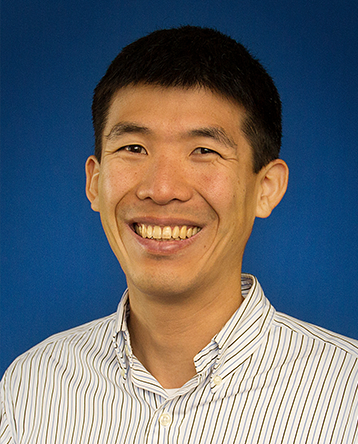Byron Yu
Professor, Biomedical Engineering, Electrical and Computer Engineering
Professor, Biomedical Engineering, Electrical and Computer Engineering

Byron Yu is a professor in the Departments of Electrical and Computer Engineering and Biomedical Engineering at Carnegie Mellon University. Yu received a B.S. degree in Electrical Engineering and Computer Sciences from the University of California, Berkeley in 2001. He received M.S. and Ph.D. degrees in Electrical Engineering in 2003 and 2007, respectively, from Stanford University. From 2007 to 2009, he was a postdoctoral fellow jointly in Electrical Engineering and Neuroscience at Stanford University and at the Gatsby Computational Neuroscience Unit, University College London.
Yu joined the faculty of Carnegie Mellon University in 2010, where he is an associate professor in the Departments of Electrical and Computer Engineering and Biomedical Engineering and the Gerard G. Elia Career Development Professor. He is broadly interested in how large populations of neurons process information, from encoding sensory stimuli to driving motor actions. His group develops and applies novel statistical algorithms and uses brain-computer interfaces to study brain function.
2007 Ph.D., Electrical Engineering, Stanford University
2003 MS, Electrical Engineering, Stanford University
2001 BS, Electrical Engineering and Computer Sciences, University of California, Berkeley
CMU Engineering
CMU-Africa, CMU-Pittsburgh, and the non-profit TReND in Africa held a summer school focused on computational neuroscience and machine learning.
CMU Engineering
Center for Neural Basis of Cognition researchers designed a clever BCI experiment to determine whether one-way activity paths, long hypothesized by neural network models, are used in the brain.
CMU Engineering
Researchers introduce new framework, Spiking Network Optimization using Population Statistics, to intelligently customize models that reproduce activity to mimic what’s observed in the brain.
CMU Engineering
Researchers from Carnegie Mellon University and University of Pittsburgh examine what happens in the brain when it’s presented with learning a new task, but also asked to recall a familiar one.
BuiltIn
BME/ECE’s Byron Yu weighs in on the benefits of brain computer interfaces (BCI) in a BuiltIn explainer piece. “Our findings will eventually lead to methods to help people learn everyday skills more quickly and to a higher level of proficiency.”
CMU Engineering
Biomedical engineering researchers analyzed existing methods that are used to interpret calcium imaging recordings, and proposed a novel method that combines two leading approaches.
CMU Engineering
Researchers from Carnegie Mellon University, Einstein College of Medicine, and the Champalimaud Foundation introduce a new statistical method, DLAG, to detangle communication across brain areas.
CMU Engineering
CMU researchers are simultaneously recording populations of neurons across brain areas in the visual system and utilizing novel statistical methods to observe neural activity patterns being conveyed.
CMU Engineering
A new perspectives piece co-authored by Carnegie Mellon University researchers relates machine learning to biological learning.
NSF
Steve Chase, Matt Smith, and Byron Yu were recently awarded a $3 million grant from the NSF to support research investigating internal states in the brain, including motivation, attention, and arousal, using brain-computer interfaces.
CMU Engineering
Carnegie Mellon University researchers have identified a way to bridge two neuronal approaches traditionally used in isolation, resulting in a richer understanding of neuronal activity.
Axios
BME/ECE’s Byron Yu was quoted on Axios about his brain-computer interface research.